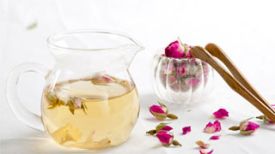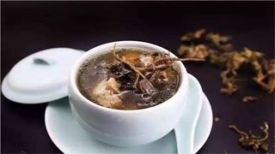Among elderly friends, there is often a saying that goes, "A thousand gold cannot buy old age to become thin." The meaning of this sentence is that as one ages, maintaining a slim figure becomes increasingly difficult, and even with the investment of wealth and energy, it is difficult to achieve this goal.
Is "old and thin" really so important for the human body?
Excessive emaciation, internal injury to the spleen and stomach
The saying "A thousand gold cannot buy old to become thin" reflects the importance that elderly friends attach to maintaining a good body shape and healthy posture, and describes a phenomenon that as they age, their metabolism slows down, making weight control more difficult.
However, for elderly people, the thinner the better. A slim figure is harmful to health without any benefits. Being too thin often means a decrease in muscle and bone mass, which is likely to cause muscle atrophy, physical decline, and can easily lead to problems such as muscle wasting and malnutrition.
The Yellow Emperor's Inner Canon records that "the spleen governs the muscles of the body." The spleen and muscles complement and influence each other. If the human body is excessively thin, it indicates dysfunction of the spleen and stomach, and the spleen and stomach are the foundation of the human body after birth. The saying goes, "Internal injury to the spleen and stomach leads to various diseases" ("Spleen and Stomach Theory"). Therefore, treating thin as the "gold standard" for health is a fallacy.
Excessive obesity, plagued by various diseases
As age increases, the metabolic rate of the human body decreases exponentially. If the calories and nutrients consumed by the body cannot be consumed or metabolized, and the amount of exercise decreases, "fat" will inadvertently "stick" to the body. Excessive obesity can lead to various diseases in the body. According to traditional Chinese medicine theory, "fat people have more phlegm and dampness," and the essence of obesity is the retention of phlegm and dampness in the body.
The Medical True Story said: "The body fluid is thick and sticky, and phlegm is the drink. It has been seeping into the pulse for a long time, and the blood is turbid. This yin stagnates in the yang." It also showed that obesity can often be accompanied by cardiovascular and cerebrovascular diseases, so obese people are more likely to have hypertension, diabetes, hyperlipidemia, etc. These diseases can also increase the burden on organs, making it even worse for the elderly.
On the other hand, excessive obesity can also bring additional pressure to the lower back and knee joints, which can easily cause damage to the lower back and knee joints. Elderly people, due to their age, experience a decline in various bodily functions and rapid bone loss, making them frequent customers of bone and joint diseases; If you continue to maintain an obese figure and add weight to your bones and joints, it will undoubtedly add fuel to the fire and accelerate the loss of bones and joints.
Maintaining a "slight gain" is essential for good health
For elderly people, being too thin or overweight is not an ideal state, so what level of weight is best for them to maintain?
In September 2023, the Chinese Nutrition Society released the "Guidelines for the Suitable Range of Body Mass Index and Weight Management for Elderly People in China", which pointed out that the suitable range of BMI for elderly people in China is 22.0-26.9.
BMI (Body Mass Index), also known as Body Mass Index, is an internationally recognized standard for assessing the degree of obesity and thinness in the human body.
BMI=weight (kilograms) ÷ height (meters) 2.
Example: A person who is 1.7 meters tall and weighs 75 kilograms has a BMI of 26.
The current relevant BMI standard guidelines suggest that the normal range of BMI for healthy adults aged 18 to 64 is 18.5 to 23.9. For elderly people, "slightly overweight" is the ideal body shape.
How do elderly people manage their weight scientifically?
It is recommended that elderly people calculate their BMI two or three times a year to maintain their weight within the recommended range in the guidelines.
In terms of diet, for elderly people without underlying diseases and without the need for special dietary control, it is recommended to maintain dietary diversity and reduce unnecessary food restrictions; Simple "vegetarianism" and "meat eating" are not advisable. It is necessary to ensure sufficient intake of animal based foods rich in high-quality protein, while also ensuring the supplementation of legumes and fresh fruits and vegetables.
For the elderly with chronic basic diseases, such as diabetes patients, it is necessary to strictly follow the guidance of diabetes diet, and at the same time refer to the glycemic index of food to formulate a reasonable diet. For other elderly friends who require special diets, it is recommended to consult a professional physician according to the actual situation and receive dietary regulation and clinical nutritional treatment.
In terms of exercise, due to the special physiological conditions of the elderly, it is recommended to follow the principles of gradual, systematic, and individual treatment during exercise. To achieve low intensity and short duration in sports; Regular and persistent; Act according to one's abilities, not show off one's abilities. Tai Chi, Ba Duan Jin, and gentle square dance are all suitable for elderly friends to learn and practice.
Is it better for elderly people to be fat or thin?
Release time:2024-06-05 14:11:32
Reading:204
Word Count:5484
Subscribe to email


